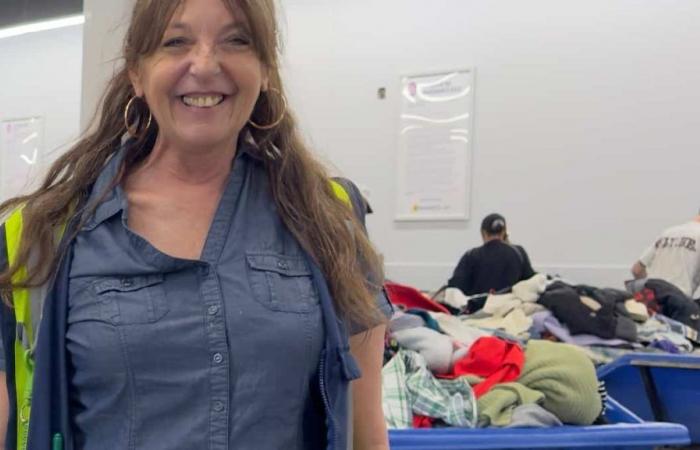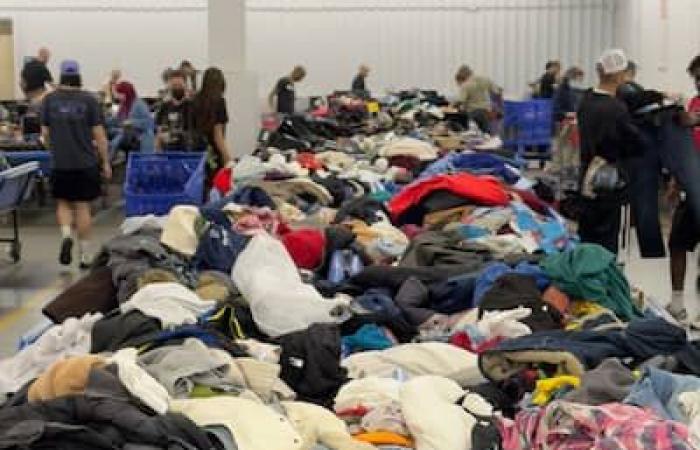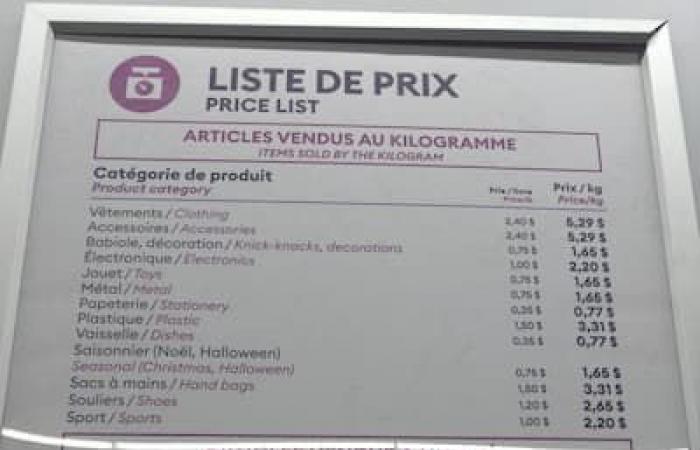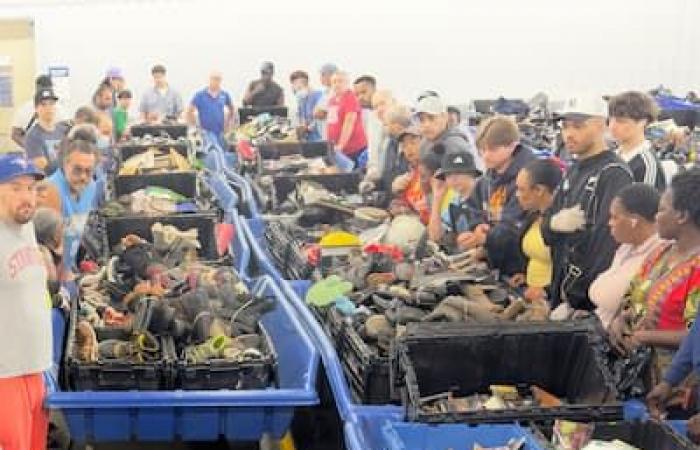Getting out of Marketplace, the Facebook platform that dominates the sector, to find second-hand treasures is not always easy. Here are three tips to go beyond the Silicon Valley giant in used.
• Read also: Roller derby loses its home in Montreal: call for help from MTLRD
• Read also: An Ontario company prevents 76,000 Quebecers from receiving the $25 owed to them by Apple
It’s in the middle of nowhere, in Montreal, that we find the first. Hidden in an industrial district 1 km from the Namur metro station, this is the Renaissance kilo store.
Here, items are sold by weight. Customers place their purchases on a scale to get the price.
Seven pairs of shoes cost $9.17 without tax. No GST or QST on second-hand products.
The seven pairs of shoes and boots worth $9.17.
photo julien mcevoy
Watches are sold for $2 each, while clothes come back at a rare price like you know what, especially in 2024. We are being robbed of a hefty $0.56 per blouse, and up to $7-8 for a leather coat.
The surplus from the 19 Renaissance stores plus their rejects are found here.
photo julien mcevoy
“We have vintage, we also sell a lot to daycares, teachers, theater groups,” says the manager of the place with enthusiasm. Line Chabot has been in charge of the store for 2 and a half years.
With 14 handlers per shift under her supervision, she ensures that operations at her Ali Baba’s cave run smoothly. The stock arrives from the 19 stores, the team classifies it by category then distributes it over 20 giant tables.

You have to hurry and enjoy digging to find treasures of all kinds. Every 45 minutes, a new table appears. They don’t have 14 employees per shift for nothing.
This turnover of products gives the place its charm. Customers crowd around the table, waiting to dive in and give a second life to their finds.
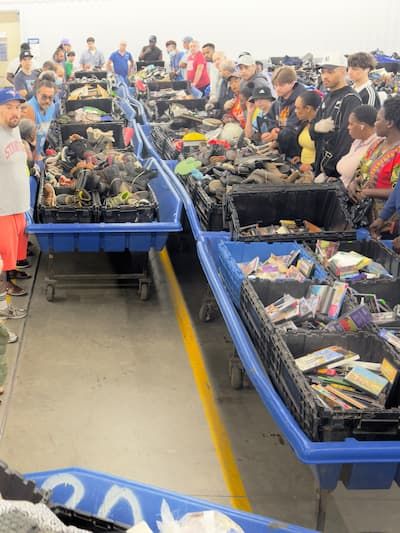
A few seconds before the start signal, customers are ready to go on a treasure hunt.
photo julien mcevoy
Once the last tray is installed, the table is ready. The signal is given, the ball can begin.
“The beautiful merchandise leaves in 10 minutes,” confides Line Chabot, who found her store very quiet on the Friday morning of our visit.
With a tone of contagious pleasure, she recounts how “on Saturdays, we are not even able to move the tables”.
From teenagers who take a 90-minute bus ride to get there to mothers and even the 45-year-old man here to refine his look, we meet a lot of different people at Renaissance kilo.
“It’s certain that we help a lot of people, especially at the moment,” analyzes the woman who can bear witness to the ravages of inflation on households and organizations.
Like new
If a visit to this unique store in Quebec doesn’t mean anything to you, a Quebec company that has been in the clothing business for over 35 years may be able to convince you.
“It was already selling well on Marketplace and Kijiji,” explains Annie Bellemare, founder of Souris Mini, about the clothes she makes with her daughter and their 250 employees.

The Souris Mini resale site has existed for four years.
photo provided by Souris Mini
The dresser for Quebec toddlers has been offering a used clothing purchasing platform for four years. Its customers have already sold more than 15,000 second-hand pieces on its site.
Souris Mini offers 10% off new clothing to sellers, another incentive. Because Annie Bellemare likes to talk about the double gift that a snowsuit given to children by grandmother represents.
“The two or three children wear it, then we sell it for $175. That’s two gifts,” laughs the friendly Quebecer.
Every change of season, it’s madness on the site. With the production of 1000 styles per year, there is no shortage of Souris Mini pieces on the market.
High end half price
Back in Montreal, near the Jean-Talon market, the Alpine Market took place this week. These are the kind of 50% sales that happen often and can be found with a little searching.
This featured camping, hiking and climbing equipment.

The Alpine Market opened Thursday in Montreal.
photo julien mcevoy
All the big brands were there, from North Face to Osprey. Some local brands were also on the displays.
“This is an opportunity to introduce our product to a new clientele,” was happy to say Maxime Morin, of the Rose Boreal brand.

Maxime Morin and Lise-Marie Cayer.
photo julien mcevoy
Crossed as soon as the doors opened on Thursday, the Montrealer was delighted to be there in the company of her development manager, Lise-Marie Cayer.
“Hey, look at that, that sweater is so thin and fun,” said the second at one point.
The consumer in her was on the lookout, as much as the businesswoman here for inspiration, to observe the customers, the products.
Rose Boreal has been producing a range of quality clothing from Montreal for seven years: leggings, bralettes, shorts, t-shirts and jackets, etc.
The idea is to set a fair price for pieces made with top-notch materials.
On Thursday, Maxime Morin’s products were seen by hundreds of curious people. The Alpine Market did not move away all day.
Bags from $420 to $256, sports shorts at half price, there wasn’t much left when the doors closed.
Facebook dominance
LesPAC has existed since 1996, Kijiji since 2005 and Marketplace since 2016. Together, they have always formed the kingdom of the used in Quebec, even if the Facebook platform is by far the most popular of the three in 2024. More than half of Quebec uses it (62%), according to a survey on the second-hand economy conducted by Protect yourself recently. This is twice as much as Kijiji (31%) and almost eight times more than LesPAC (8%).
Do you have any information to share with us about this story?
Write to us at or call us directly at 1 800-63SCOOP.

